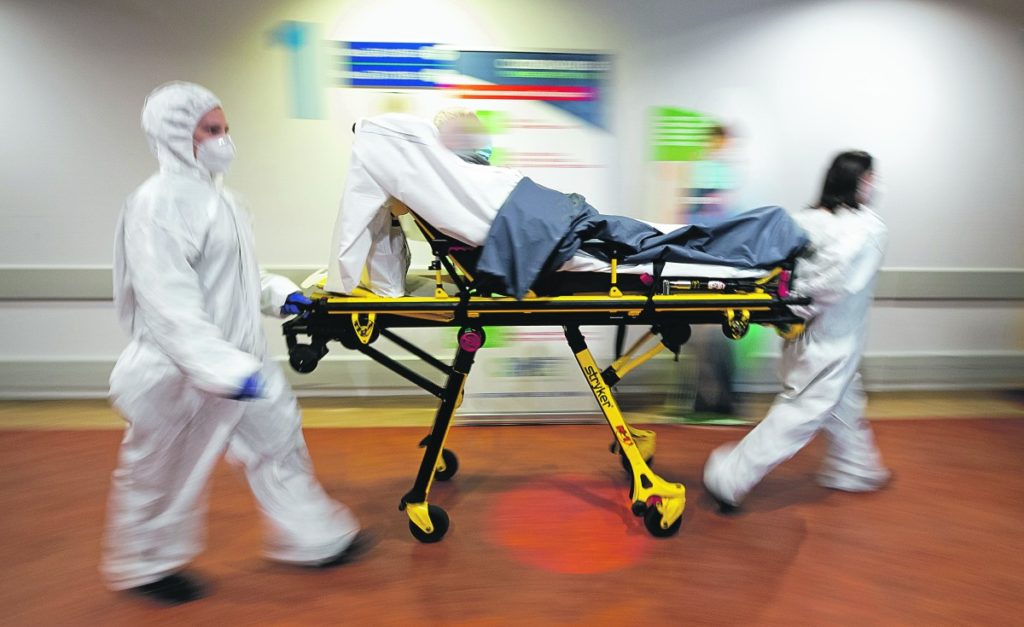An average of almost 10,000 new coronavirus infections is being recorded on a daily basis in Belgium, while the number of patients in intensive care has surpassed the "alarm level."
Between 6 and 12 November, an average of 9,998 new coronavirus infections were identified every day, a 27% increase from the previous seven days, according to figures published by the Sciensano Public Health Institute on Tuesday.
Aside from the number of infections seen during the second wave in October last year, this is the highest number of cases recorded since the start of the pandemic.
The number of tests being taken increased by 6% (79,622.4), while the positivity rate has risen by 2.1% since last week, now sitting at 13.3%.
During the same period, an average of 26.7 people died per day from the virus, up by 27% from last week. This brings the total number of deaths since the beginning of the pandemic in Belgium to 26,403.
In light of the worsening situation, the next meeting of Belgium’s Consultative Committee, scheduled for Friday, has been brought forward to Wednesday. Ministers will discuss the rising figures and what measures to implement to curb infections.
Between 9 and 15 November, an average of 234.3 patients suffering from Covid-19 were admitted to hospitals per day, a 28% increase since the previous week, the highest rate since April.
On Monday, a total of 2,648 people were in hospitals due to an infection (169 more than on Sunday), including 533 patients being treated in intensive care (+16), with 274 on a ventilator (+20).
To cope with the influx of people being hospitalised as a result of the virus, hospitals have been asked to reserve 50% of beds in their intensive care units for Covid-19 patients by Friday, barely one week after they were asked to reserve one-third of all ICU beds.
Related News
- 'Twenty more every day': 533 Covid patients in ICU in Belgian hospitals
- Mandatory vaccination for health care workers from 1 April
- 'Not an option': employers strongly oppose teleworking obligation
Tthe virus reproduction rate has slightly increased to 1.13. This figure represents the average number of people infected by each infected person, and when it is above 1, it means that the epidemic is gaining ground in Belgium.
The incidence, which indicates the number of new cases per 100,000 inhabitants, has increased by 38% and now sits at 1,086.5 over the past 14 days.
As of Sunday, more than 8.76 million people in Belgium have received a first dose of the vaccine, representing 88% of the adult population, and 76% of the total population.
Meanwhile, more than 8.62 million people are fully vaccinated, accounting for 87% of the adult population in Belgium, and 75% of the total population.
Belgium has also started administering booster doses of coronavirus vaccines to people from certain vulnerable groups to keep the protection against the coronavirus sufficiently high. As of Sunday, more than 887,000 people had received such a dose. The general population will receive a booster dose of a coronavirus vaccine next year.

